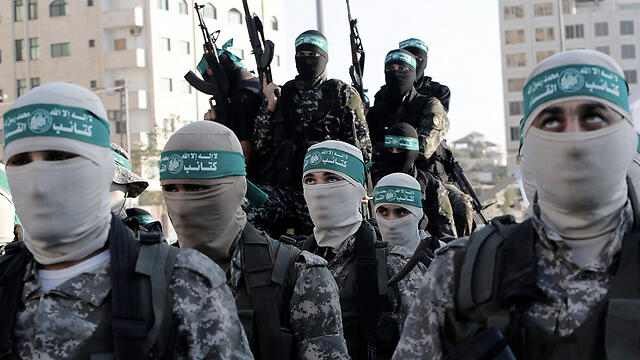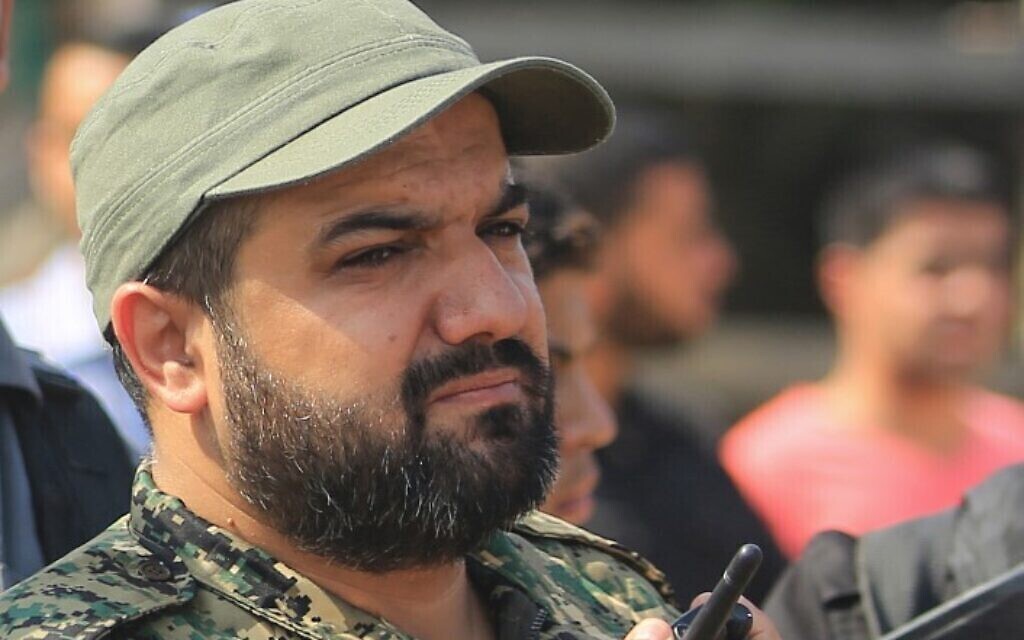It could be surmised, though not with complete confidence, that the two rockets fired at Israel from the Gaza Strip early Sunday morning were launched by the Palestinian Islamic Jihad terror group.
It could actually have been carried out by a radical faction within the terror group, which refused to listen to Hamas' demand to avoid any such action on the day marking one year since the killing by Israel of Baha Abu al-Ata, the Islamic Jihad commander in Gaza.
The dissenters who did attack Israel did so to hurt it and mainly to make good on a threat in order to win prestige within the organization. They also did so despite Israel last week making it very clear to Hamas that the response to such an attack would be painful and aimed directly at its armed forces – those who maintain Hamas control of the Gaza Strip and those who are tasked with preventing such incidents by Islamic Jihad.
But the militants who launched those rockets were determined to avenge Abu al-Ata on the anniversary of his killing.
Considering the trajectory and the flight of the missiles, it can be determined that while they were larger than rockets usually fired by Islamic Jihad, they were locally produced and therefore rather lacking in accuracy.
It appears the terrorists aimed to hit the northern side of Ashdod and its neighboring city of Ashkelon. The Iron Dome missile defense system did not intercept them, however, and the projectiles landed in open areas without causing any damage, giving weight to the assumption that these were low quality rockets.
If the militant groups in Gaza are trying to find new ways to bypass Iron Dome's defense radius, they have yet to make any breakthrough.
The timing of the launches themselves - overnight Saturday and not Thursday, the actual date of al-Ata's death, was probably due to the cold and rainy weather in the area.
Gazans, at least those who launched those rockets, have yet to understand that the Israeli Air Force is more than capable of attacking targets deep in enemy territory regardless of weather conditions.
It could be that the harsh weather also helped the militants as cover from Hamas' armed forces, who probably were not on high alert due to the rain and wind.
The question now is what Hamas' next step will be following the IDF's retaliatory strikes in Gaza on Sunday morning. Hamas leaders have tried to dissuade Islamic Jihad from rocket strikes not only because they knew Israel would in response attack its own military facilities, including rocket workshops, tunnels and outposts, but because they were told to do so.
Rocket launches from the Gaza Strip
Hamas knows that the Gazan people are in the midst of deep social and economic distress, with nearly 49% unemployment, and that Israel is willing to be more lenient in negotiations in order to bring some quiet to its southern frontier.
The main objective for both Hamas and Israel is to achieve a halt in violence. Jerusalem is even willing to help the terror group should there be an uncontrolled coronavirus outbreak in the enclave, given Gaza's abysmal health system.
Israeli mediators are also working on a deal with Qatar to ensure its monetary aid to Gaza continues throughout 2021.
With all of this in mind, Hamas has no interest in starting a conflict with Israel at the moment, and will probably turn a blind eye to the latest IAF airstrikes on Saturday and will not be dragged along in Islamic Jihad's wake.





